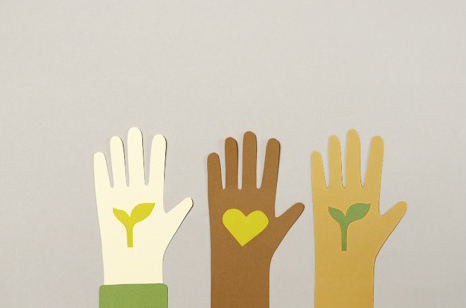
The environmental changes we are seeing in real time tell us that, if we haven't already, we should definitely start rethinking the way we live. When making the transition to an eco-friendly lifestyle, some decisions may seem daunting at first, but it's all about small, conscious changes that add up to have a bigger impact. From the way we eat to how we relax after a long day, there are many ways to replace old habits with eco-conscious solutions. Let's figure out how to make these changes without feeling overwhelmed.
Why become sustainable?
We are constantly bombarded with news about climate change, pollution and biodiversity loss. It can feel heavy. That's why it's important to make the change we can, because every small step you take to reduce waste, conserve resources or reduce emissions can contribute to a healthier planet.
People sometimes make the mistake of thinking that sustainability means giving up convenience or the things you love. We want to offer you a different way of thinking about green. Instead of making sacrifices, it's about finding alternatives that work for you and the environment. Let’s break it down into everyday areas where you can make a difference.
1. Rethink your shopping habits
Your weekly shopping trip can be a sustainability goldmine if done right. First, bring your own reusable bags instead of relying on single-use plastic. Another simple switch? Choose loose produce over prepackaged products and support local farmers markets when you can. Locally sourced food requires fewer emissions to transport and is often fresher.
We know that giving up meat isn't easy. You don't have to go completely vegan, reducing your meat consumption – even just a few days a week – can significantly reduce your carbon footprint. Try meatless Mondays or experiment with plant-based protein options. You'll be surprised at how your taste buds (and the planet) will thank you.
2. Renew your energy consumption at home
Your home is another great place to make lasting changes. Switch to energy-efficient LED light bulbs, unplug appliances when not in use, and consider investing in a smart thermostat to optimize your heating and cooling. If you're ready to go big, consider installing solar panels or choosing a renewable energy provider.
You can also save water by fixing leaky faucets, taking shorter showers, or even reusing gray water for tasks like watering plants. These small tweaks may seem trivial, but over time they add up for the environment and your utility bills.
3. Environmentally friendly leisure and relaxation
Relaxation and recreation do not have to come at the expense of the environment. For example, when it comes to traditional smoking methods, the production and disposal of materials can contribute to environmental pollution. Brands like Blakk Smoke offer modern alternatives that allow you to enjoy your time out in a more relaxed and environmentally friendly way.
The same principle applies to other hobbies too. Do you love reading? Switch to e-books or borrow them from your local library instead of buying new ones. Interested in fitness? Try outdoor activities that don't require energy-consuming equipment, like hiking, cycling, or yoga in the park.
4. Make fashion sustainable
Fast fashion is one of the main causes of environmental destruction. Instead of buying new clothes every season, consider being thrifty or shopping from sustainable brands. Quality over quantity is the motto here. Not only do you save money, but you also reduce the demand for mass production, which is often associated with harmful chemicals and unethical labor practices.
Another pro tip: Use the capsule wardrobe. Stick with versatile, timeless pieces that you can mix and match rather than chasing trends. It's a stylish way to simplify your life while protecting the planet.
5. Green commuting
How you get from point A to point B is also important. Instead of driving alone, consider carpooling with friends or colleagues nearby. Additionally, choose public transportation, cycling or walking instead of a private car. Not only will you reduce emissions, but you may also find that these alternatives are cheaper and more convenient.
Work remotely? This is another win for sustainability. Fewer commutes mean fewer emissions and more time to focus on eco-friendly activities like gardening or cooking meals from scratch.
6. Mindful consumption
Whether you like it or not, we live in a consumer-driven world. However, before you click “Add to Cart,” ask yourself if you really need this item. When purchasing, look for products with minimal packaging or those made from recycled materials.
7. Building sustainable community habits
Individual actions are great, but when communities come together the impact is even greater. Start a recycling program in your neighborhood, organize cleanups, or join local environmental groups. Sharing resources – like carpooling or tool libraries – can also reduce waste and build stronger relationships with your neighbors.
Educating others about the benefits of sustainability can have a domino effect. Whether through casual conversations, social media posts, or hosting workshops, spreading the message helps normalize eco-friendly living.
Final Thoughts: Progress, not perfection
Sustainability is not about doing everything perfectly. It's about making consistent efforts to reduce your environmental impact. Some days you will make it; Other days, not so much. And that's okay! The key is to keep moving forward and adopt new habits that align with your values.
Let’s make sustainability the new normal – one thoughtful exchange at a time.